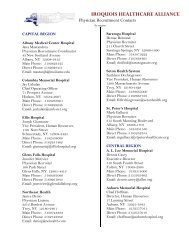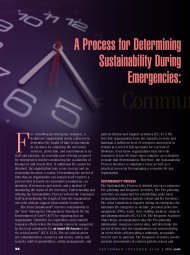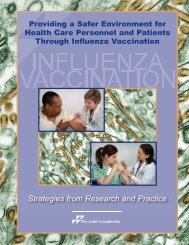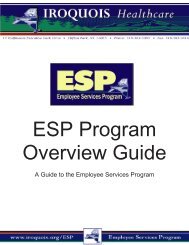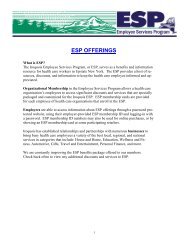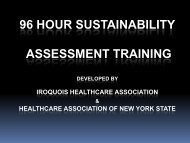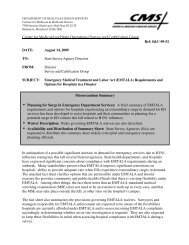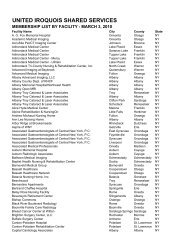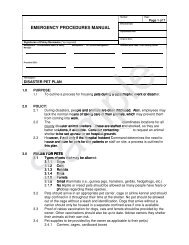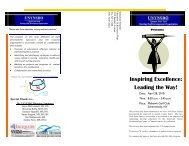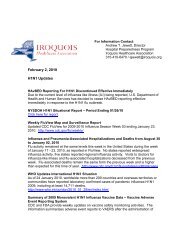NYS Public Health Legal Manual: A Guide for Judges, Attorneys ...
NYS Public Health Legal Manual: A Guide for Judges, Attorneys ...
NYS Public Health Legal Manual: A Guide for Judges, Attorneys ...
Create successful ePaper yourself
Turn your PDF publications into a flip-book with our unique Google optimized e-Paper software.
§ 1.70 NEW YORK STATE PUBLIC HEALTH LEGAL MANUAL<br />
suppression and removal of all nuisances and conditions detrimental<br />
to life and health found to exist within the health district.”].<br />
Compare <strong>Health</strong> Code [24 RCNY] § 3.03(e) [In New York City,<br />
notice and hearing requirements may be dispensed with “where the<br />
Department determines that immediate action is required to protect<br />
the public health”].<br />
Eminent domain comes into play only when the purpose of the<br />
government’s action is to obtain actual ownership of the property.<br />
The culmination of the eminent domain process is a judicial<br />
“vesting” proceeding brought by the government in which the court<br />
may award title of the property to the government, followed by<br />
judicial determination of just compensation. See EDPL § 402(B);<br />
PHL § 401(8)-(12). While there are provisions in the EDPL <strong>for</strong> the<br />
government to seize the property <strong>for</strong> public use in an emergency<br />
situation be<strong>for</strong>e the transfer of ownership is completed, EDPL §§<br />
206(D); 402(B)(6), the ultimate objective of the eminent domain<br />
proceeding is the obtaining of ownership by the government. The<br />
addressing of public health emergencies rarely involves that<br />
objective.<br />
[1.70] B. Constitutional Restraints<br />
[1.71] 1. Fourth Amendment: Searches and Seizures<br />
Administrative searches of private dwellings and commercial premises<br />
are governed by the Fourth Amendment’s prohibition of unreasonable<br />
searches and seizures and the requirement that warrants not issue except<br />
upon probable cause. See Camara v. Municipal Court, 387 U.S. 523<br />
(1967). As with the Fourth Amendment constraints on intrusions into the<br />
human body, see IV(B) and (C), supra, the ultimate finding of reasonableness<br />
depends upon a balancing of the governmental and private interests<br />
at stake. See United States v. Knights, 534 U.S. 112, 118-19 (2001). This<br />
entails a balance of the degree of expectation of privacy and the intrusiveness<br />
of the search versus the strength of the government’s interest. Id.<br />
The privacy expectations involved in an administrative search of a residence<br />
are extremely high. See United States v. United States District<br />
38



